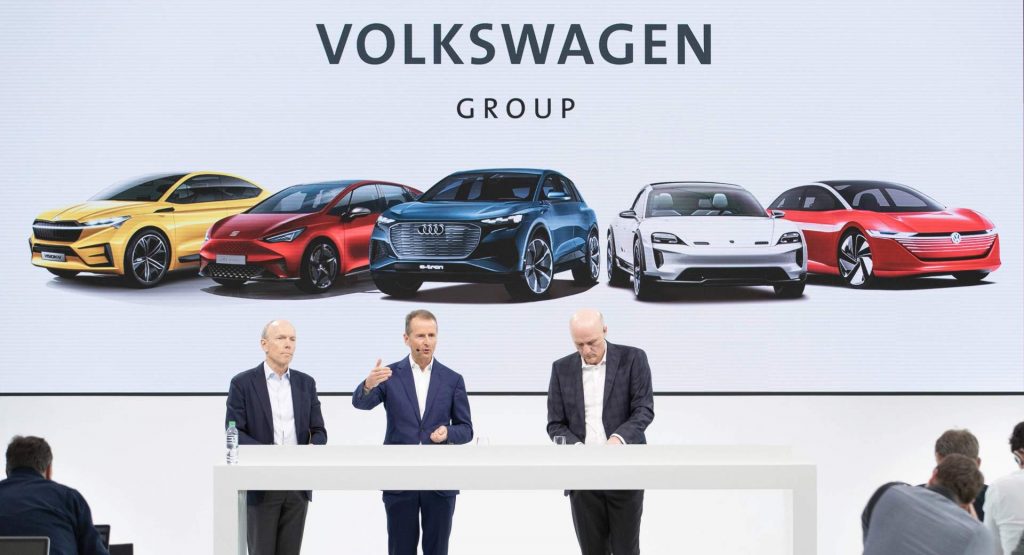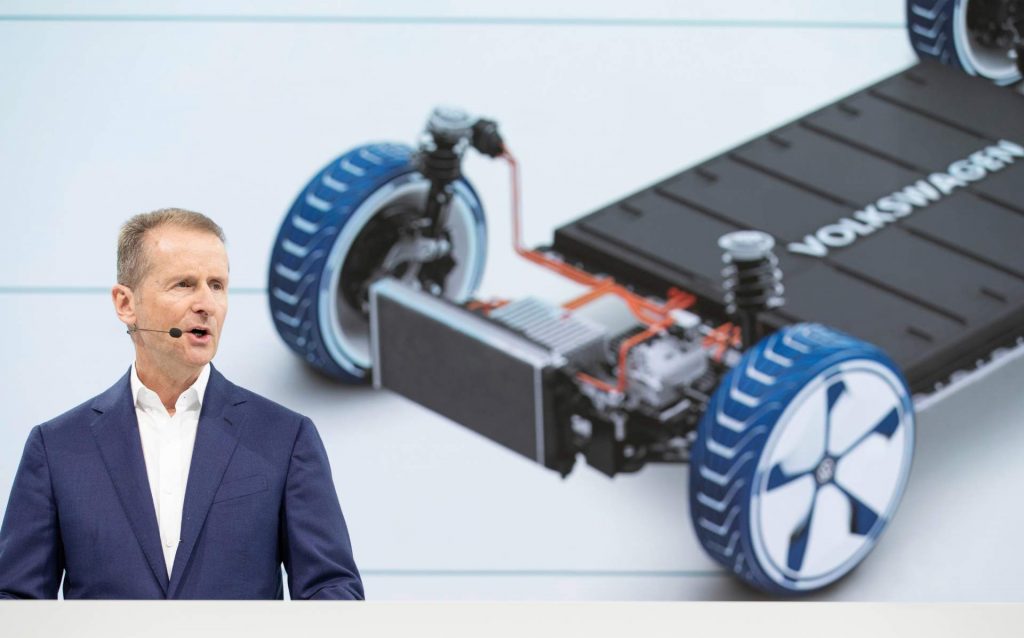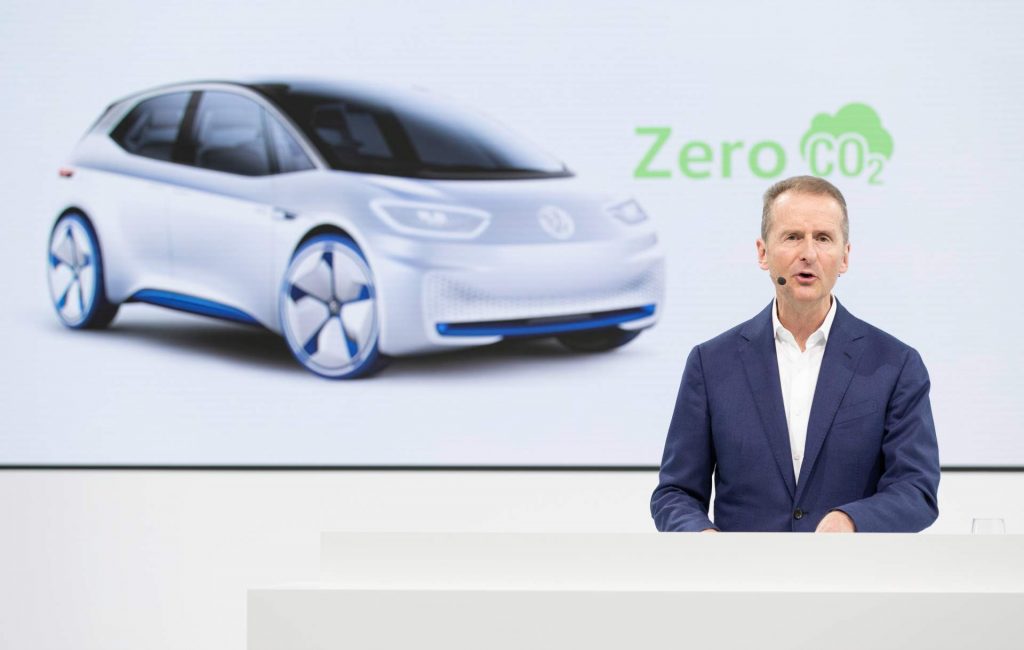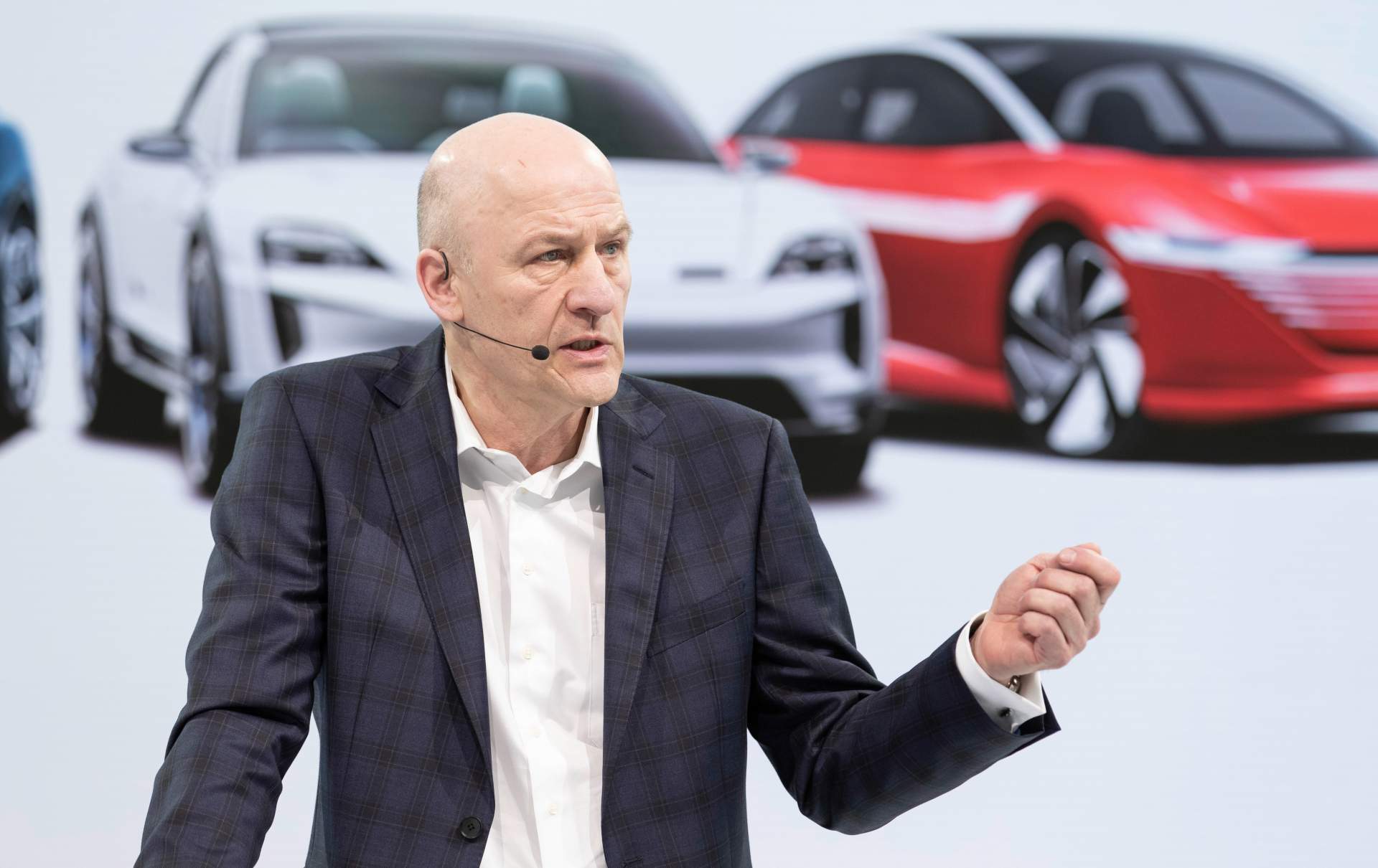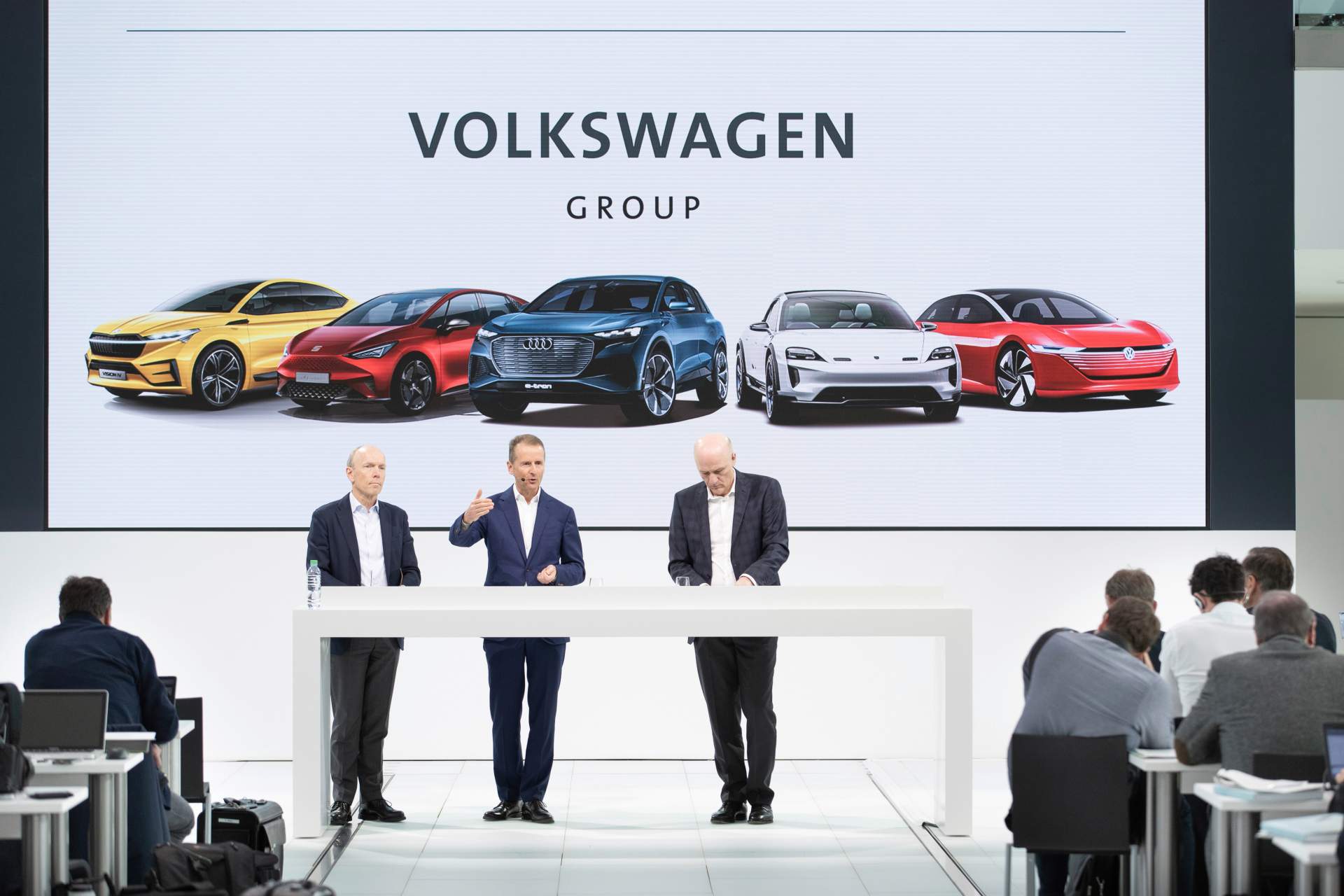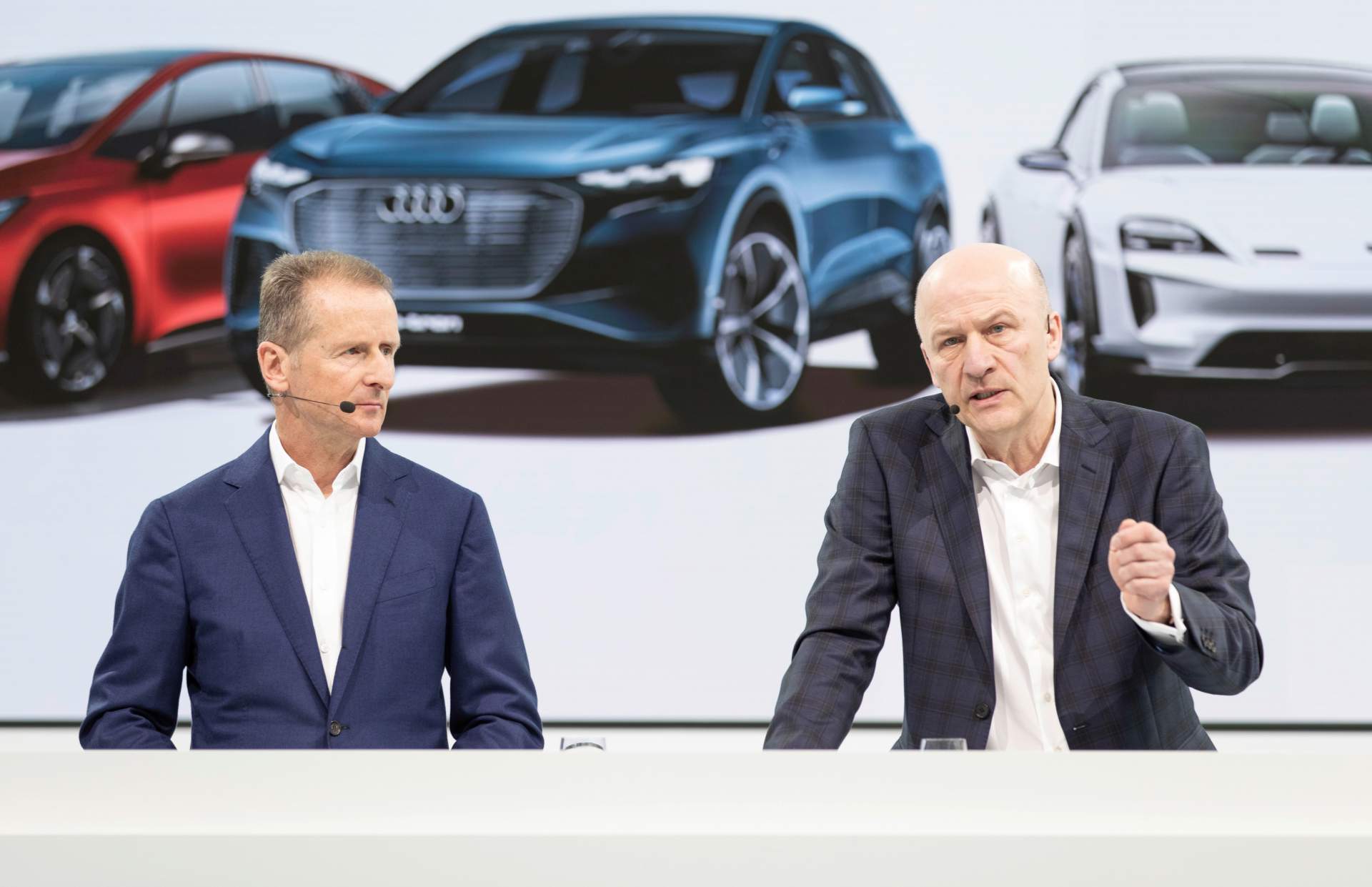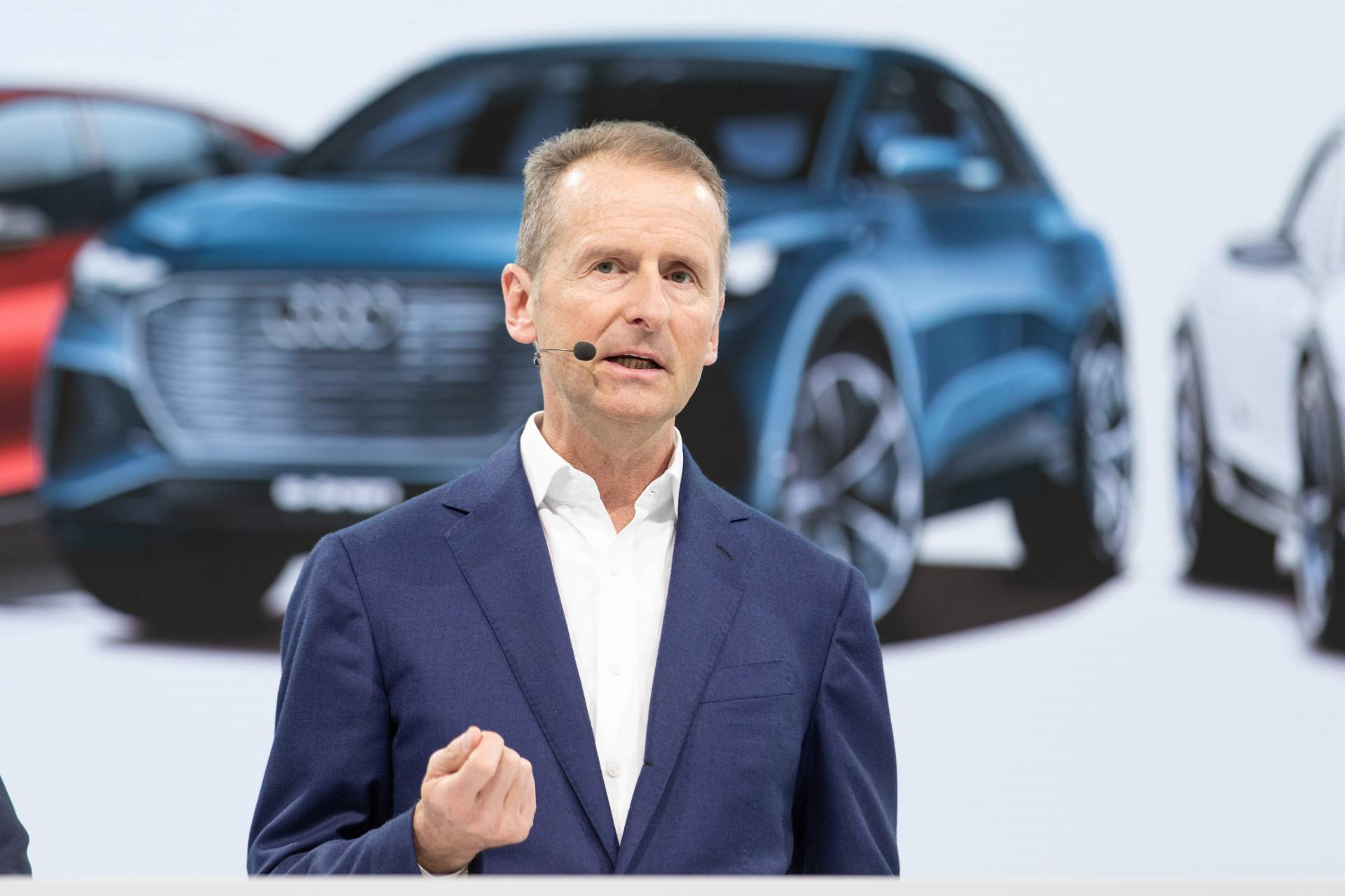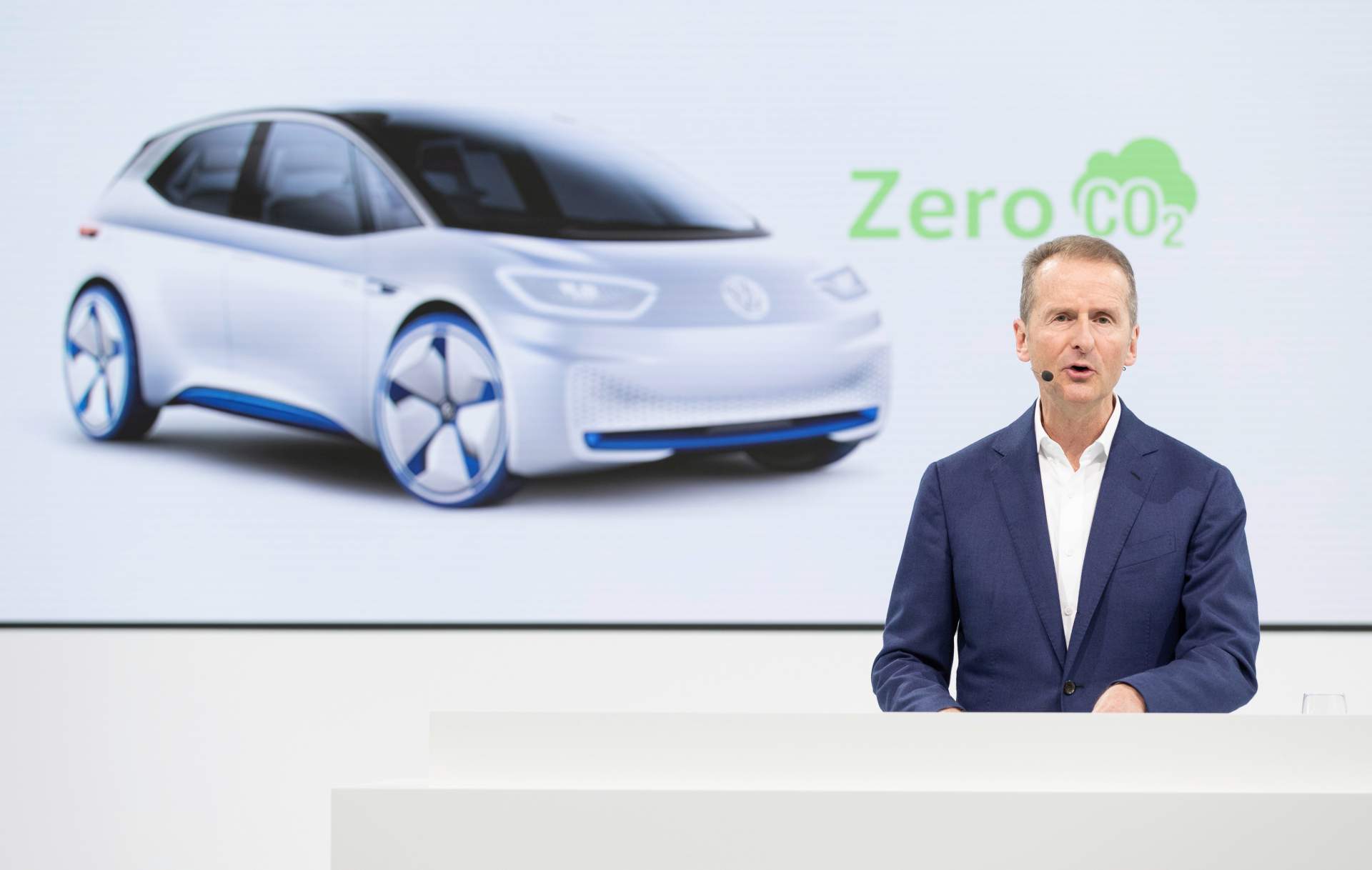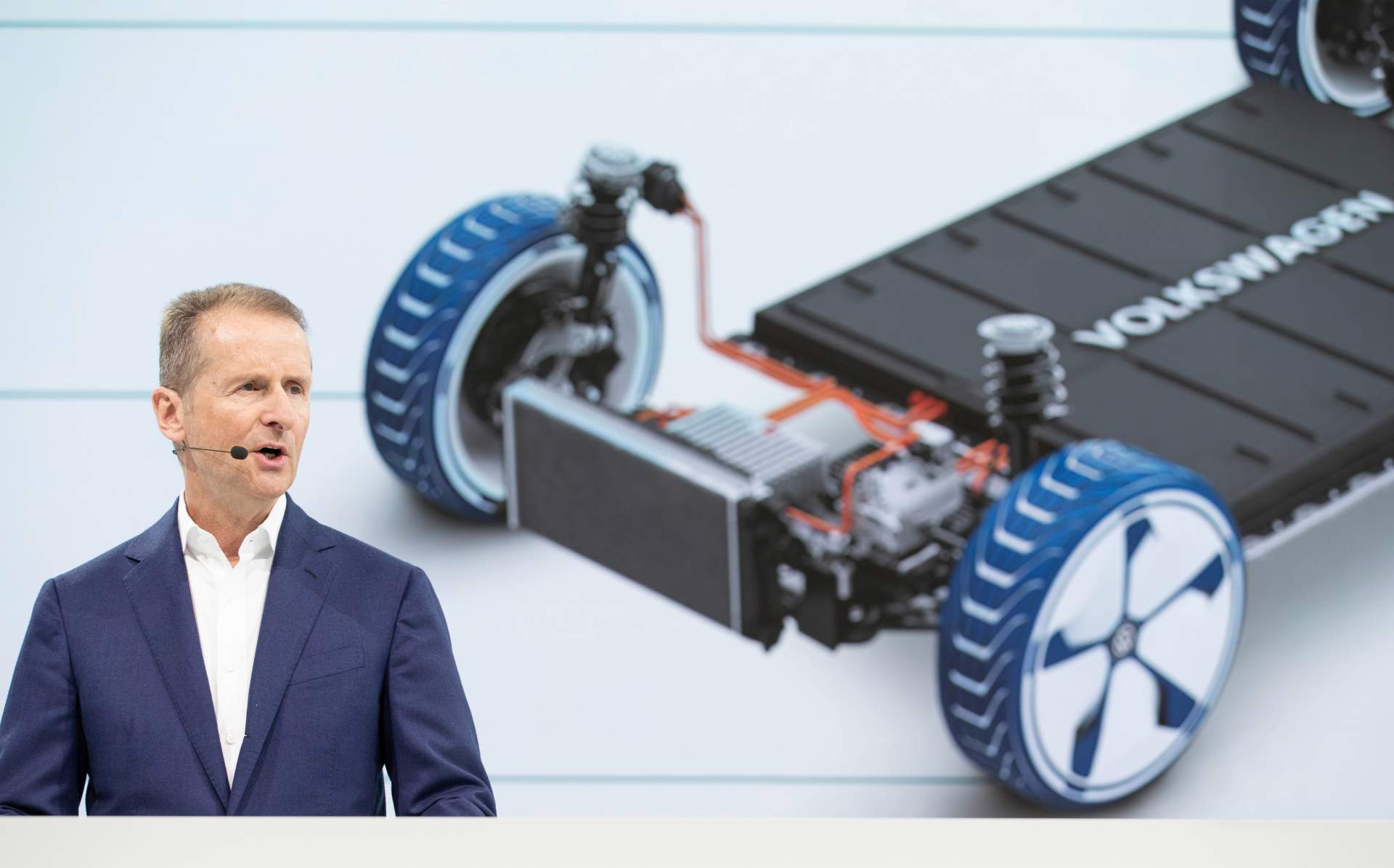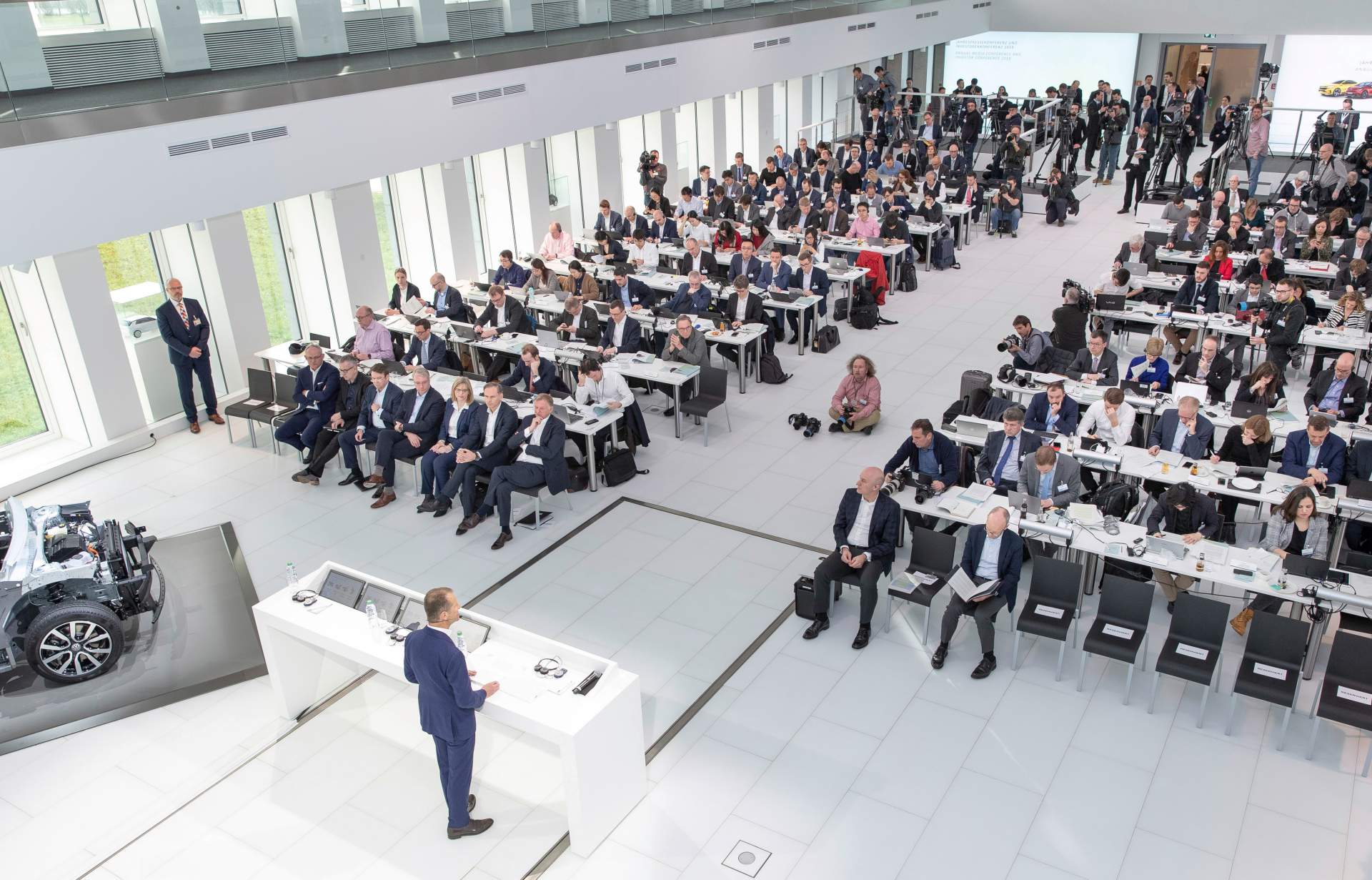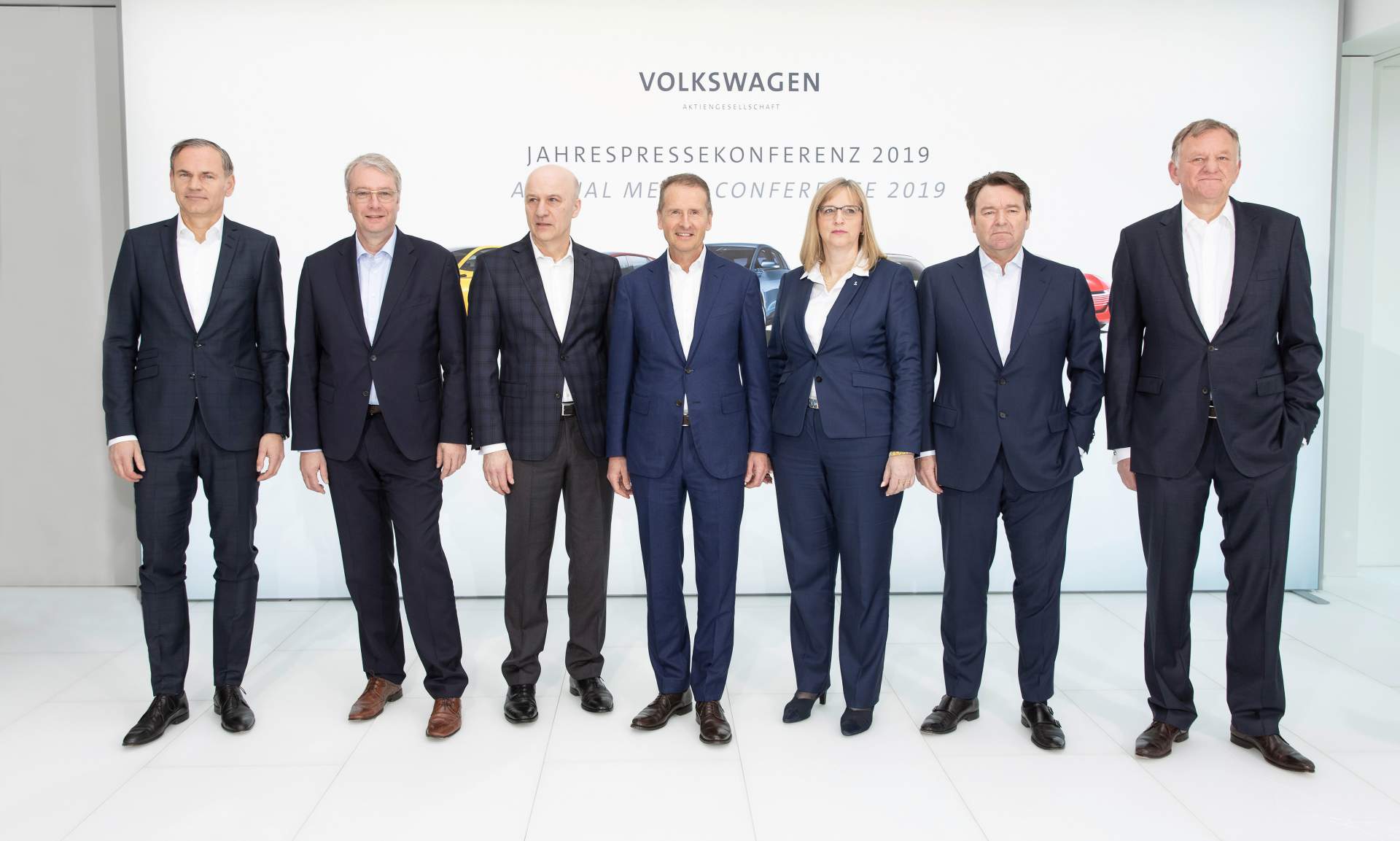Volkswagen Group’s highly ambitious plan to launch 50 new electric models by 2028 has just become even more ambitious.
At the annual media conference of Volkswagen AG (which you can watch in full in the video below), the company has announced it will bring to market almost 70 new electric models in the next ten years. As a result, the projected number of vehicles to be built on the VW Group’s electric platforms will increase from 15 million to 22 million.
The company will invest more than €30 billion ($33.7 billion) by 2023 to electrify the vehicle portfolio. By 2030, VW forecasts EVs will make up at least 40 percent of its Group fleet.
The first of the new-generation electric vehicles go into production this year: the Audi e-tron and the Porsche Taycan. They will be followed by the Volkswagen ID hatchback, VW ID Crozz, Seat el-born, Skoda Vision E, VW ID Buzz, and VW ID Vizzion.
For this massive electric offensive, the VW Group will rely on LG Chem, SKI, CATL, and Samsung as strategic battery cell suppliers. The automaker is also looking at possible participation in battery cell manufacturing facilities in Europe. The company sees great potential in solid-state batteries and aims to enable an industrial level of production with this technology together with QuantumScape.
The VW Group aims to achieve a fully CO2-neutral balance by 2050
VW has also signed off a comprehensive decarbonization program aimed at achieving a fully CO2-neutral balance in all areas from fleet to production to administration by 2050. The company says this shows its full commitment to the Paris climate targets.
“Volkswagen is seeking to provide individual mobility for millions of people for years to come – individual mobility that is safer, cleaner and fully connected. In order to shoulder the investments needed for the electric offensive we must make further improvements in efficiency and performance in all areas,” said Dr. Herbert Diess, CEO of Volkswagen AG.
What that means is significant challenges lie ahead. On the road to complete decarbonization by 2050, VW will adopt three principles: effective and sustainable CO2 reduction, switch to renewable energy sources for power supply, and compensation for remaining emissions that cannot be avoided.
For 2025, the target is to reduce the CO2 footprint of the vehicle fleet by 30 percent across the lifecycle compared to 2015. At the same time, the goal is to cut CO2 emissions at all plants 50 percent by 2025 compared with 2010.
https://www.youtube.com/watch?v=QrRj2YhOjTM



